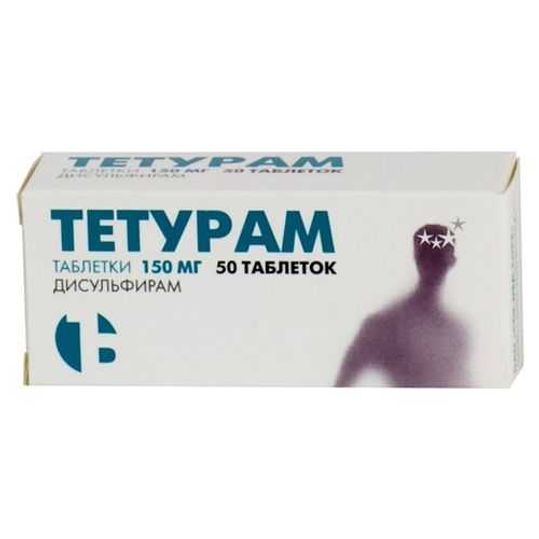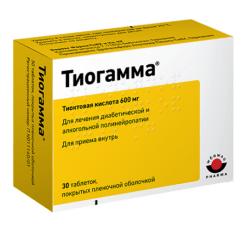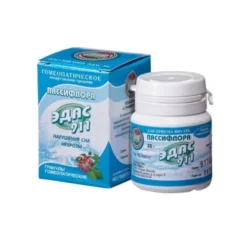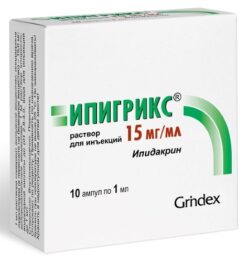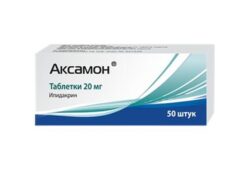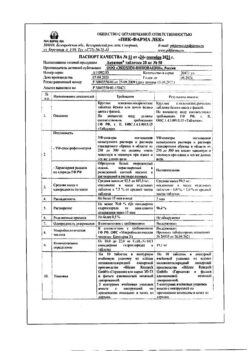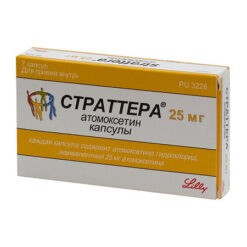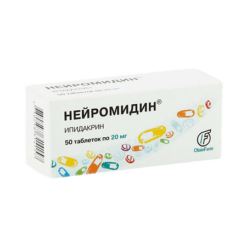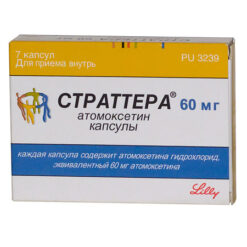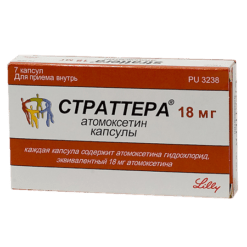No products in the cart.
Teturam, tablets 150 mg 50 pcs
€9.26 €8.36
EAN: 4680020231293
SKU: 233858
Categories: Medicine, Neurology and Psychiatry, Sedatives and hypnotics
Description
Teturam inhibits acetaldehyde dehydrogenase involved in ethanol metabolism; it increases the concentration of acetaldehyde, which is a metabolite of ethanol and causes a number of unpleasant symptoms after its use (“rushes” of blood to the skin, nausea, vomiting, malaise, tachycardia, BP decrease).
As a result, the development of conditioned reflex reaction of aversion to the taste and smell of ethanol takes place.
The duration of action of oral tablets is 48 hours. The use in the form of implants creates a constant concentration of the drug in the body.
Disulfiram-ethanol reactions can occur within 5-9 months after implantation. If ethanol is ingested, lipid mobilization occurs, vasodilation and increased blood flow at the implantation site, resulting in increased blood flow of disulfiram.
Indications
Indications
Treatment and prevention of relapse of chronic alcoholism.
As a detoxifying agent for chronic nickel poisoning.
Pharmacological effect
Pharmacological effect
Teturam inhibits acetaldehyde dehydrogenase, which is involved in ethanol metabolism; increases the concentration of acetaldehyde, which is a metabolite of ethanol and causes a number of unpleasant symptoms after its consumption (flushes of blood to the skin of the face, nausea, vomiting, feeling of malaise, tachycardia, decreased blood pressure).
As a result, a conditioned reflex reaction of disgust to the taste and smell of ethanol is developed.
The duration of action of oral tablets is 48 hours. Use in the form of implants creates a constant concentration of the drug in the body.
Disulfiram-ethanol reactions can occur within 5-9 months after implantation. When ethanol is taken, lipids are mobilized, blood vessels dilate and blood flow increases at the implantation site, resulting in an increase in the flow of disulfiram into the blood.
Special instructions
Special instructions
Patients should be warned about the danger of an intolerance reaction to alcoholic beverages.
Teturam should be taken with caution in patients with renal failure or hypothyroidism, especially if there is a risk of possible combination with alcohol.
Active ingredient
Active ingredient
Disulfiram
Composition
Composition
1 tablet contains:
teturam 150 mg.
Excipients:
potato starch,
stearic acid,
aerosil.
Contraindications
Contraindications
Absolute:
– Complicated diseases of the cardiovascular system.
– Organ of hearing (neuritis of the auditory nerve).
– The organ of vision (glaucoma, optic neuritis).
– Bronchial asthma.
– Emphysema.
– Pulmonary tuberculosis.
– Severe liver failure.
– Diseases of the hematopoietic organs.
– Diabetes mellitus.
– Thyrotoxicosis.
– Epilepsy.
– Convulsive syndrome of any origin.
– Mental illness.
– Exacerbation of peptic ulcer disease.
– Kidney diseases.
– Malignant tumors.
– Polyneuritis of any etiology.
– Pregnancy.
– Increased individual sensitivity to the drug.
Relative:
– Cardiovascular diseases in the compensation stage.
– Old age (over 60 years old).
– Peptic ulcer of the stomach and duodenum in remission.
– Residual effects after NMC.
– Previously suffered teturamic (antabuse) psychoses.
Side Effects
Side Effects
Caused by the properties of teturam: metallic taste in the mouth, unpleasant odor in patients with colostomy (associated with carbon sulfide), rare cases of hepatitis, sometimes found in patients with nickel eczema who do not suffer from alcoholism, polyneuritis of the lower extremities, optic neuritis, memory loss, confusion, asthenia, headaches, skin allergic manifestations.
Associated with the combination of teturam – ethyl alcohol: cases of respiratory failure, cardiovascular collapse, rhythm disturbances, angina pectoris, sometimes myocardial infarction, neurological disorders, cerebral edema have been described.
Complications with long-term use: rarely psychoses resembling alcoholism, hepatitis, gastritis; in persons suffering from cardiovascular diseases, thrombosis of cerebral vessels is possible, therefore, if you complain of paresthesia in the limbs and face, you should immediately discontinue the drug; exacerbation of polyneuritis.
When taking doses of alcohol over 50 – 80 ml of vodka while taking Teturam: severe disorders of the cardiovascular and respiratory systems, edema, and convulsions develop. In this case, detoxification therapy is urgently carried out, analeptics are administered, and symptomatic treatment is carried out.
Interaction
Interaction
Contraindicated combinations
Alcohol: intolerance reaction (flushes, erythema, vomiting, tachycardia). Avoid taking alcoholic beverages and medications containing alcohol.
Undesirable combinations
Isoniazid: behavioral and coordination disorders.
Nitro-5-imidazoles (metronidazole, ordinazole, secnidazole, tinidazole): delirium, confusion.
Phenytoin: significant and rapid rise in plasma phenytoin levels with toxic symptoms (suppression of its metabolism).
If the combination cannot be avoided, clinical observation and monitoring of drug concentrations in entry plasma and after treatment with teturam should be carried out.
Combinations requiring caution
Warfarin (and other oral anticoagulants): increased effect of oral anticoagulants and risk of bleeding (reduced breakdown of warfarin in the liver). More frequent monitoring of warfarin concentrations and adjustment of the dose of anticoagulants is recommended for 8 days after discontinuation of teturam.
Theophylline: Teturam inhibits the metabolism of theophylline. As a result of this, the dose of theophylline should be adjusted (reduced dosage), depending on clinical symptoms and plasma concentrations of the drug.
Benzodiazepines: Teturam may potentiate the sedative effect of benzodiazepines by inhibiting their oxidative metabolism (especially chlordiazepoxide and diazepam). The dosage of benzodiazepine should be adjusted according to clinical manifestations.
Tricyclic antidepressants: an increase in the reaction of alcohol intolerance is possible (especially if patients take alcoholic beverages while taking Teturam).
Overdose
Overdose
Symptoms: the combination of teturam and ethanol can cause depression of consciousness up to coma, cardiovascular collapse, and neurological complications.
Treatment: symptomatic.
Storage conditions
Storage conditions
Store in a dry place, protected from light, at a temperature not exceeding 25°C.
Shelf life
Shelf life
4 years.
Manufacturer
Manufacturer
ABVA RUS, Russia
Additional information
| Shelf life | 4 years. |
|---|---|
| Conditions of storage | Store in a dry place, protected from light, at a temperature not exceeding 25 ° C. |
| Manufacturer | Avva Rus, Russia |
| Medication form | pills |
| Brand | Avva Rus |
Related products
Buy Teturam, tablets 150 mg 50 pcs with delivery to USA, UK, Europe and over 120 other countries.

